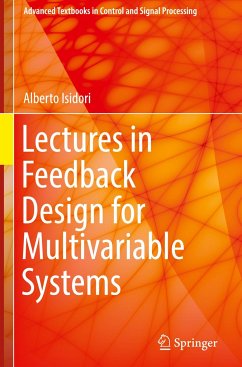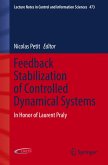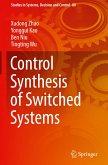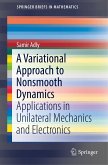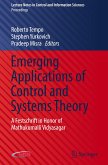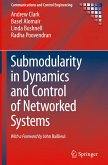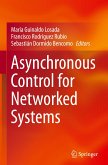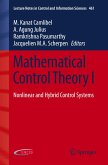This book focuses on methods that relate, in one form or another, to the "small-gain theorem". It is aimed at readers who are interested in learning methods for the design of feedback laws for linear and nonlinear multivariable systems in the presence of model uncertainties. With worked examples throughout, it includes both introductory material and more advanced topics.
Divided into two parts, the first covers relevant aspects of linear-systems theory, the second, nonlinear theory. In order to deepen readers' understanding, simpler single-input-single-output systems generally precede treatment of more complex multi-input-multi-output (MIMO) systems and linear systems precede nonlinear systems. This approach is used throughout, including in the final chapters, which explain the latest advanced ideas governing the stabilization, regulation, and tracking of nonlinear MIMO systems. Two major design problems are considered, both in the presence of model uncertainties: asymptotic stabilization with a "guaranteed region of attraction" of a given equilibrium point and asymptotic rejection of the effect of exogenous (disturbance) inputs on selected regulated outputs.
Much of the introductory instructional material in this book has been developed for teaching students, while the final coverage of nonlinear MIMO systems offers readers a first coordinated treatment of completely novel results. The worked examples presented provide the instructor with ready-to-use material to help students to understand the mathematical theory.
Readers should be familiar with the fundamentals of linear-systems and control theory. This book is a valuable resource for students following postgraduate programs in systems and control, as well as engineers working on the control of robotic, mechatronic and power systems.
Divided into two parts, the first covers relevant aspects of linear-systems theory, the second, nonlinear theory. In order to deepen readers' understanding, simpler single-input-single-output systems generally precede treatment of more complex multi-input-multi-output (MIMO) systems and linear systems precede nonlinear systems. This approach is used throughout, including in the final chapters, which explain the latest advanced ideas governing the stabilization, regulation, and tracking of nonlinear MIMO systems. Two major design problems are considered, both in the presence of model uncertainties: asymptotic stabilization with a "guaranteed region of attraction" of a given equilibrium point and asymptotic rejection of the effect of exogenous (disturbance) inputs on selected regulated outputs.
Much of the introductory instructional material in this book has been developed for teaching students, while the final coverage of nonlinear MIMO systems offers readers a first coordinated treatment of completely novel results. The worked examples presented provide the instructor with ready-to-use material to help students to understand the mathematical theory.
Readers should be familiar with the fundamentals of linear-systems and control theory. This book is a valuable resource for students following postgraduate programs in systems and control, as well as engineers working on the control of robotic, mechatronic and power systems.
"This book by Alberto Isidori is devoted to the problem of output feedback stabilization. ... Although the book is directed to (current and future) control engineers rather than mathematicians, it is written with mathematical rigor. It contains precise definitions, clearly stated theorems and precise proofs. There are many examples with detailed computations, which help the reader understand long theoretical discussions." (Zbigniew Bartosiewicz, Mathematical Reviews, April, 2018)

